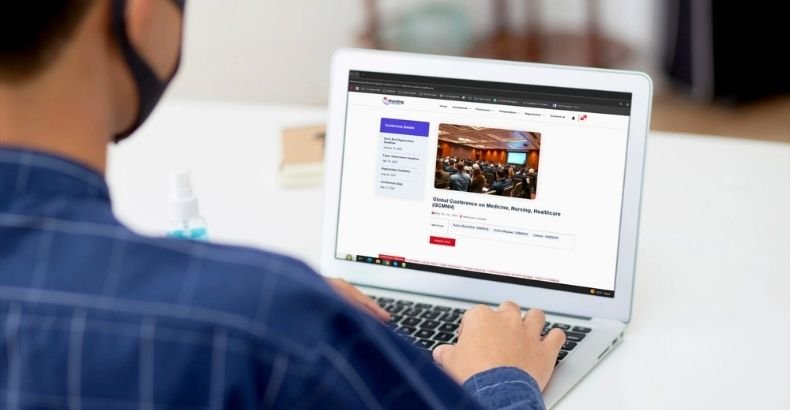Nursing conferences provide a professional forum for the exchange of ideas and the sharing of knowledge in today’s healthcare environment. At these gatherings, keynote speakers and professionals address the latest trends in nursing practice and education. This might make you wonder, can nursing students attend nursing conferences?
Yes, nursing students can attend nursing conferences. Many events welcome students, offering discounted registration fees and special sessions suited to their needs. These conferences allow students to engage with experienced professionals, broaden their understanding of the field, and gain insights into real-world healthcare scenarios that can shape their future careers.
Would you like to know how nursing students can participate in these events? This article will explore everything you need to know, from registration processes to networking opportunities, ensuring you have all the information necessary for a successful conference experience.
The Rise of the Nursing Conference
In the healthcare industry, nursing conferences have become essential. These events offer a great platform for professionals to exchange ideas, share research, and discuss the latest advancements in the field. For nursing students and professionals alike, attending these conferences can greatly enhance their knowledge and skills.

One of the key benefits of nursing conferences is the networking opportunities they provide. By connecting with experienced professionals, students can gain valuable insights into the industry. Networking at these events can help open doors to new job opportunities, mentorship, and collaborations.
Furthermore, nursing conferences often include a wide variety of topics that serve different specialties within the field. This makes it easier for attendees to find sessions that align with their personal or professional interests. The diversity of topics ensures that everyone can benefit from the information presented.
If you’re looking for events that bring together global experts in nursing, the upcoming international nursing conference is an excellent option. These conferences typically feature presentations, workshops, and panel discussions that focus on the latest trends and innovations in nursing.
Who Attends Nursing Conferences?
During nursing conferences, professionals from various backgrounds can learn, network, and share experiences. These events are vital for the healthcare industry. Below, we explore who attends these gatherings and their roles in the field:
Registered Nurses (RNs)
A large majority of nursing conference attendees are registered nurses (RNs). They come to learn about the latest advancements in patient care, medical technologies, and treatment approaches. These events give RNs the chance to network with peers and gain continuing education credits that help them grow professionally.
Nursing Educators
Nursing educators play a key role in advancing the future of nursing practices. They attend conferences to stay updated on teaching techniques and curriculum advancements. These professionals often share their research, learn from others, and gain insights that enhance their classroom and clinical teaching.
Nurse Practitioners (NPs)
By attending nursing conferences, nurse practitioners stay up-to-date on the latest clinical practices, healthcare policies, and patient care techniques. These events help NPs sharpen their skills and expand their knowledge base for improved patient outcomes.
Nursing Students
Another key group found at nursing conferences is nursing students. Many conferences welcome them to help broaden their education and expose them to real-world healthcare scenarios. Students can network with seasoned professionals, learn about emerging trends, and prepare for their future roles.
Healthcare Administrators
Healthcare administrators, while not providing direct patient care, attend nursing conferences to understand the operational and administrative challenges nurses face. These insights allow them to create better work environments, improve staffing models, and ensure effective patient care delivery in healthcare settings.
Nursing conferences gather a wide range of professionals, each contributing to the growth and innovation within the field. These events provide invaluable learning and networking opportunities, helping to shape the future of healthcare through collaboration and shared knowledge.
Can Nursing Students Attend Nursing Conferences?
It is possible for nursing students to attend conferences by following a few simple steps. Nursing students can take advantage of these opportunities effectively if they are eager to expand their knowledge and network with professionals. Here are a few strategies to help them benefit from these events.

Researching Conference Options
The first step for nursing students is to thoroughly research various nursing conferences. Many events occur throughout the year, both locally and internationally. By exploring different topics and identifying valuable nursing conferences to attend, students can find those that align with their interests and career goals, ensuring a worthwhile experience. Reviewing the themes, speakers, and locations can help narrow down options that offer the most relevant information and networking opportunities.
Understanding Registration Requirements
Each nursing conference has its own registration process that students must understand. Typically, students can visit the conference’s official website for detailed instructions on how to register. It is essential to pay attention to deadlines and fees, as many conferences offer reduced rates for students. Knowing the registration process helps streamline attendance and allows students to prepare adequately for the event.
Choosing Relevant Sessions
Different topics are usually covered at nursing conferences. Students should review the conference agenda carefully to select sessions that are most relevant to their studies and future career paths. This strategic approach ensures that they maximize their learning opportunities and gain insights applicable to their educational journey. Attending targeted sessions allows students to gather specific knowledge that aligns with their interests.
Applying for Scholarships or Discounts
Many nursing conferences offer scholarships or discounts specifically designed for students. Students should explore these financial options before committing to attend. Applying for scholarships can significantly reduce costs, making it easier for students to participate without financial pressure.
Networking Opportunities
Conferences provide invaluable networking opportunities for nursing students. Engaging with professionals and other attendees during networking sessions, coffee breaks, and social events can lead to meaningful connections. Building relationships with experienced nurses, educators, and peers can open doors to mentorship and future job opportunities. Effective networking can enhance a student’s career trajectory, making it an essential aspect of attending any conference.
Travel and Accommodation Arrangements
For conferences held in different cities or countries, students need to make travel and accommodation arrangements. Booking flights and hotels in advance can save money and ensure availability. Many conferences collaborate with local hotels to offer discounted rates for attendees. Students should research transportation options to the conference venue and plan their travel schedule accordingly to avoid last-minute complications.
Preparing for the Event
The key to making the most of a nursing conference is preparation. Students should create a detailed plan outlining which sessions they want to attend and any materials they need to bring. They should also prepare questions to ask speakers and other professionals, ensuring they engage fully in discussions. Being well-prepared enhances the overall experience and helps students gain valuable insights during the conference.
Taking Advantage of Student Resources
Many nursing conferences provide special resources and opportunities specifically for students. These can include mentorship programs, student-only workshops, or sessions customized to early-career professionals. Taking advantage of these resources allows students to gain insights and advice that are particularly relevant to their career development. Engaging with these offerings can help students feel more connected to the nursing community.
Post-Conference Follow-up
For nursing students, making contact with new contacts at conferences is an essential step. Sending emails or connecting on professional networking platforms like LinkedIn can help maintain relationships established during the event. This follow-up can lead to future collaborations, internships, or job opportunities. Reflecting on what was learned at the conference also reinforces the knowledge gained and encourages continuous learning.
By following these steps, nursing students can successfully attend conferences and take full advantage of everything these events offer. Proper preparation and engagement ensure they make the most of the experience.
Why Are Nursing Conferences Important for Students?
The importance of nursing conferences to students’ careers cannot be overstated. These events open up opportunities for growth, learning, and networking, all essential for future success.

Expanding Knowledge Beyond the Classroom
During nursing conferences, students are exposed to the latest research, innovations, and trends in the medical field. By participating in these events, students gain insights beyond classroom teachings. This experience helps them stay updated with the latest practices and prepares them for future challenges they may face in healthcare settings.
Increasing Professional Networking Opportunities
These conferences bring together a diverse group of professionals, educators, and experts in nursing. For students, this is a valuable opportunity to meet potential mentors and build relationships that can be beneficial in their careers. Establishing a network early can provide guidance and lead to future job opportunities.
Building Confidence and Communication Skills
Engaging in presentations or discussions at nursing conferences can significantly improve students’ public speaking skills. This exposure not only boosts their confidence in communicating ideas but also enhances their ability to present findings effectively. Such experiences prepare students for future professional interactions and collaborative environments.
Discovering Career Opportunities and Specializations
It is common for nursing students to explore various specializations within their field. Conferences provide a platform to learn about different nursing career paths and areas of focus. By attending specialized sessions and workshops, students can find potential career paths that align with their interests, talents, and professional goals.
Access to Resources and Tools for Growth
The latest tools, equipment, and technologies are usually on display at nursing conferences. Students have the opportunity to explore these resources, which may be beneficial for their academic projects or future professional work. Access to innovative tools can foster growth and inspire new ideas.
Students gain valuable experience from nursing conferences, shaping their career development. By attending, they gain exposure to critical knowledge and build connections that support their future nursing success.
What Topics Are Covered at a Nursing Conference?
Various aspects of healthcare are discussed at nursing conferences, bringing together professionals. Attendees gain new insights and skills, helping them enhance their careers. Below are some key topics frequently addressed at these events.
Patient Care Innovations
The topic of patient care innovations is a recurring theme at nursing conferences. These discussions often focus on new techniques, treatment advancements, and technologies designed to improve patient outcomes. Nurses learn how to apply these innovations to their daily practice, ensuring better care for their patients and greater efficiency in healthcare environments.
Nursing Leadership and Management
A leadership or management session is invaluable for those who hold supervisory positions or aspire to them. These topics explore strategies for effective team management, conflict resolution, and decision-making in healthcare settings. Attendees gain insights into how strong leadership positively impacts patient care and workplace dynamics.
Nursing Education and Training
Training and education are always priorities, as they ensure nurses’ continuous professional development. These sessions discuss updated curricula, teaching methods, and certifications that enhance nursing education. The goal is to improve nursing students’ learning experience and ensure that healthcare professionals stay updated on the latest standards.
Healthcare Policy and Ethics
Topics related to healthcare policy and ethics address the rules and guidelines that govern nursing practice. Conference discussions often explore the ethical challenges nurses face, how policies shape patient care, and the legal considerations involved in medical decision-making. These discussions help nurses navigate complex situations confidently.
Mental Health and Well-being
Conferences are increasingly discussing nurses’ mental health and well-being. This topic covers strategies for managing stress, preventing burnout, and maintaining a healthy work-life balance. These sessions offer guidance on how nurses can care for their own mental health while delivering high-quality patient care.
A nursing conference offers valuable learning and growth opportunities covering a wide range of important topics. Each topic contributes to the overall advancement of nursing as a profession, supporting the continuous development of healthcare professionals in various areas.
Is It Necessary to Network at a Nursing Conference for Students?
Attending nursing conferences is not complete without networking, especially for students. It provides opportunities to learn, grow, and connect with professionals. Understanding its impact can be key to maximizing the benefits of nursing conferences.

Expanding Knowledge Through Conversations
Students can gain valuable insights from nurses and professionals during conferences by interacting with them. Engaging in conversations with experts allows students to understand the real-world applications of their studies and gain valuable knowledge on current industry practices, making their education more relevant and impactful. This exchange of ideas can inspire students to think critically and creatively about their future roles in nursing.
Building Lasting Professional Relationships
Establishing a network early in a nursing career can open doors to mentorship, job opportunities, and collaborations. By connecting with professionals and peers, students create a foundation for future relationships that may support their career growth and development. These connections can lead to recommendations for internships or job placements, helping students transition smoothly from education to employment in the competitive nursing field.
Gaining Confidence in Professional Settings
For many students, nursing conferences provide the first chance to engage with professionals in their field. Networking helps them build confidence in professional interactions and develop interpersonal skills. Engaging with experienced professionals and fellow students allows them to practice their communication skills in a supportive environment, preparing them for real-world experiences where effective communication plays a critical role in patient care and teamwork.
Exploring Career Opportunities
Conferences expose students to various career paths and areas of specialization within nursing. Through discussions and networking, students can explore potential roles that align with their interests and talents. Learning about different specializations, such as pediatric nursing, geriatrics, or critical care, can help students make informed decisions about their career choices after graduation. This exploration can inspire passion and purpose in their nursing journey.
Strengthening the Learning Experience
Besides sessions and workshops, networking allows students to discuss new ideas and concepts with others. Sharing experiences and exchanging thoughts deepens their understanding and improves their ability to apply knowledge in practical situations. Collaborating with peers and mentors develops a culture of learning, encouraging students to think critically and creatively about their future roles in healthcare.
A nursing conference’s networking component helps students develop both personally and professionally. By engaging with others, students can open up a range of opportunities that are essential for getting the most from nursing conferences.
Tips for Nursing Students to Effectively Network at Nursing Conferences
Taking part in nursing conferences is a great opportunity for students to connect with professionals and other students. Networking helps students build valuable relationships and learn from experienced individuals. Below are tips to help students network effectively at these events.
- Be Prepared with a Personal Introduction: Include a brief introduction that highlights your current studies and interests. This will make it easier to engage with professionals and peers at the event.
- Attend Workshops and Seminars: Participating in workshops and seminars allows you to meet people with similar interests. It also provides natural opportunities for interaction and discussion with attendees and speakers.
- Use Social Media to Connect: Before and during the event, use social media platforms to find and engage with other attendees. This helps you connect with people in advance and make in-person meetings easier.
- Approach Speakers After Sessions: Take the initiative to introduce yourself to speakers after their presentations. This is a great way to meet experts and start meaningful conversations about topics that interest you.
- Join Group Discussions: Look for opportunities to join group discussions or informal chats during breaks. This helps you meet multiple people at once and contributes to interesting conversations.
- Follow Up With New Contacts: After meeting someone, make sure to follow up with a short message or email. This helps solidify the connection and keeps the conversation going after the event.
- Carry Business Cards or Contact Info: Bring business cards or have a quick way to share your contact information with others. This makes it easy to stay in touch with new contacts after the conference ends.
Networking at nursing conferences creates opportunities for personal and professional growth. By applying these tips, nursing students can build valuable relationships that support their career development and open doors for future collaborations.
How to Register for a Nursing Conference as a Student?
As a student, you can benefit from valuable learning and networking opportunities by registering for nursing conferences. Following the right steps, students can ensure they are prepared and ready to attend. The process is easy to follow and accessible.

Step 1: Find the Right Conference
Start by identifying which nursing conferences align with your academic interests or career goals. Look for events that feed specifically to nursing students or offer relevant sessions for education and professional development. This ensures you choose a conference that provides valuable content and experiences that will improve your knowledge and skills.
Step 2: Review the Requirements
After selecting a conference, carefully read through the registration requirements to understand the details. Each conference may have different eligibility criteria for students, including age limits, enrollment status, and pricing options. Some events may offer special discounts or scholarships for students, making it essential to be well-informed before proceeding with registration.
Step 3: Prepare Your Information
Gather all the necessary information needed for the registration process, such as your full name, student ID, contact details, and any institutional affiliation. Make sure to have any required documents or references ready, as being organized will simplify the registration process and help avoid any last-minute issues that could delay your attendance.
Step 4: Complete the Registration Form
Fill out the conference registration form with accurate information, ensuring that you provide all required details completely. This form may be available online or as a printed document, depending on the conference. Double-check your entries for errors before submitting, as inaccuracies can lead to complications or delays in your registration.
Step 5: Submit Payment
If the conference requires a registration fee, be sure to follow the provided instructions for submitting your payment. Many conferences offer special pricing for students, which can be beneficial. Submitting your payment quickly ensures that you secure your spot, and it may also allow you to take advantage of early-bird discounts available for attendees.
Step 6: Confirm Your Registration
After you submit your registration form and payment, wait for a confirmation email or receipt that verifies your registration status. This confirmation serves as proof of your registration, so it is important to keep it accessible. You may need to show this confirmation at the conference during check-in to gain access to the event.
Taking part in a nursing conference as a student can be a rewarding experience. By following the outlined steps, students can easily navigate the process and prepare for the opportunity to engage, learn, and grow in their field.
Frequently Asked Questions
The experience of attending nursing conferences can be valuable for nursing students. Here are some frequently asked questions to help clarify any doubts about participation, benefits, and what to expect during these important events.
What Types of Nursing Conferences Can Students Attend?
There are several types of nursing conferences that students can attend, including those that focus on specific nursing specialties, general healthcare topics, and nursing education. These events may vary in size and scope, from local gatherings to large international conferences, ensuring there are options suitable for every student’s interests.
Are There Any Age Restrictions for Nursing Students at Conferences?
Generally, there are no age restrictions for nursing students attending conferences. However, some events may specify that attendees should be enrolled in an accredited nursing program. It’s essential for students to check the event guidelines to ensure eligibility before registering.
What is the Typical Cost of Attending a Nursing Conference as a Student?
The cost of attending a nursing conference can vary widely based on the event’s location, duration, and amenities. Many conferences offer discounted registration fees for students, and some may provide scholarships or grants to help cover expenses, making it more affordable to participate.
Do Nursing Conferences Offer Continuing Education Credits for Students?
Some nursing conferences provide continuing education (CE) credits for attending sessions, though this may primarily apply to licensed professionals. While students may not be eligible for CE credits, they can still gain valuable knowledge that enhances their academic and clinical skills.
What Should Nursing Students Wear to Conferences?
It is important for nursing students to dress in professional, comfortable attire suitable for a conference setting. Business casual is often the recommended dress code, but students should also consider the specific event’s guidelines. Comfortable shoes are essential, especially if there will be extensive walking or standing.
Final Word
Students who attend nursing conferences have a wealth of opportunities to enhance their education and professional development. These events offer exposure to the latest research, innovative practices, and a chance to connect with experienced professionals in the field. By participating, students can gain valuable insights that will aid in their academic journey and future career.
So, can nursing students attend nursing conferences? Absolutely! Nursing students are welcome at most conferences and can benefit greatly from the experience. They can participate in various sessions, workshops, and networking events designed specifically to support their educational and career goals. These conferences are a great way to start building a professional network early.
As you prepare to attend a nursing conference, remember to dress professionally, bring plenty of business cards, and engage actively in networking opportunities. Make the most of the workshops and sessions to broaden your knowledge and skills. Best wishes on your way; may your conference experience be both rewarding and inspiring!